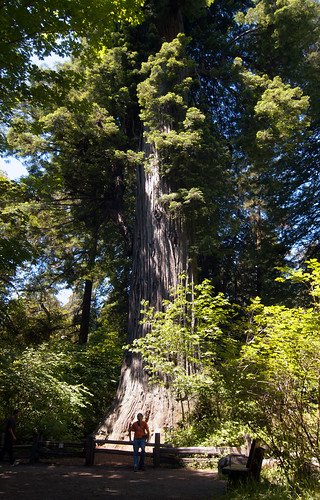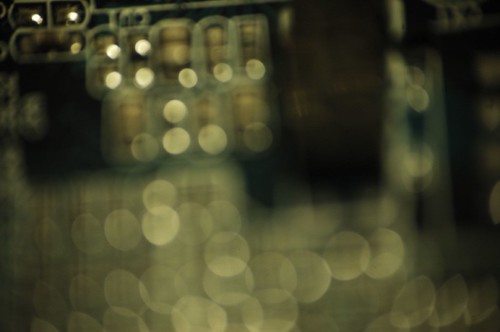
So, a few weeks ago I got a chance to visit Northern California and Southern Oregon. Some of the most beautiful country I’ve seen. In my week-and-a-half of hiking, mineral baths, good beer, grass-fed beef, and other great endeavors I got a chance to visit the Redwood National Park and the state parks along the Northern Pacific Coast of California where the great trees reside. A redwood tree can live to be 2,000 years old, if permitted to do so. Redwoods are almost impervious to fire, because of their mass, so a whole forest would never go up in flames as easily as the other pine and fir-covered lands that make up Northern California. These groves had to have been thousands of years old.
The famous library of Alexandria, Egypt was a great collection of knowledge. The ancients gathered thought throughout the lands of Alexander’s conquests and eventually it became the first research institute. Theories, ideas, and concepts were tested and developed. One of these thinkers, Aristarchus of Samos had a curious idea that the Earth traveled around the Sun as documented by Archimedes. Of course we do not have access to Aristarchus’ original scrolls. Several times the library was consumed in flames and much of the knowledge generated by the greatest thinkers of the ancient world was lost. It wasn’t until about a thousand or more years later that Copernicus came to this same conclusion; the redwoods kept growing.
Lately I’ve been daydreaming about the trees or contemplating something Carl Sagan said on a Cosmos episode and every once in a while I think about where we are today. I think about hard drives and the fact that the Library of Congress is archiving our Twitter feeds. Not to say that all the best and brightest use Twitter, but it is an example of where we are today. It is a snapshot of our collective history. The World Wide Web, in which Twitter inhabits, is too. That and a repository of knowledge. The trees are touching the sky.
I see a lot of push away from the static (and flammable) printed page to the dynamic world of the digital media. Information is readily available but easily changes with the click of a mouse button. Take Wikipedia for example as a constantly-evolving database of information. But alas, the internet is a large array of interconnected computers and all this knowledge, all this history, is stored on devices that require a flow of electrical current to perform. The redwoods require water and sunlight.
Say that the human population was wiped out by disease, war, disaster and famine (you know, the typical stuff) and some alien race happened upon our planet. A curious race that is in to planetary archeology. Go along with me here. How readily available would our hard drives be to these visitors? Would they have the technology to decode our zeros and ones. They would probably still see the trees (unless we removed them all).
Hammurabi’s code was written in stone that we have unearthed. In the distant future will our digital world be as easily extracted? Will our systems sustain our own disasters? I think in many ways that our ideas are as fragile as those that sat in the library of Alexandria. Our knowledge is fleeting, as are we; only nature perpetuates.
2 Comments


